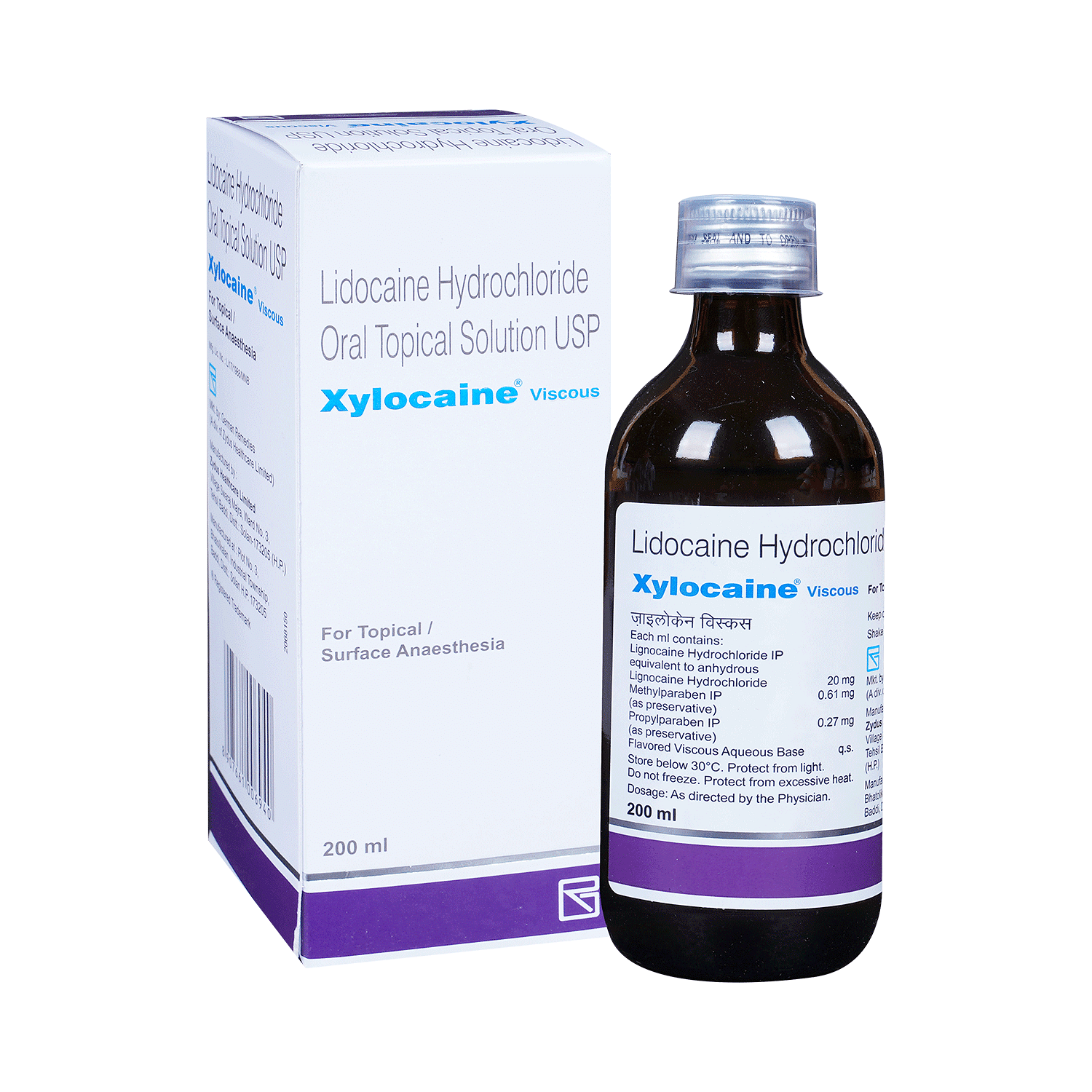
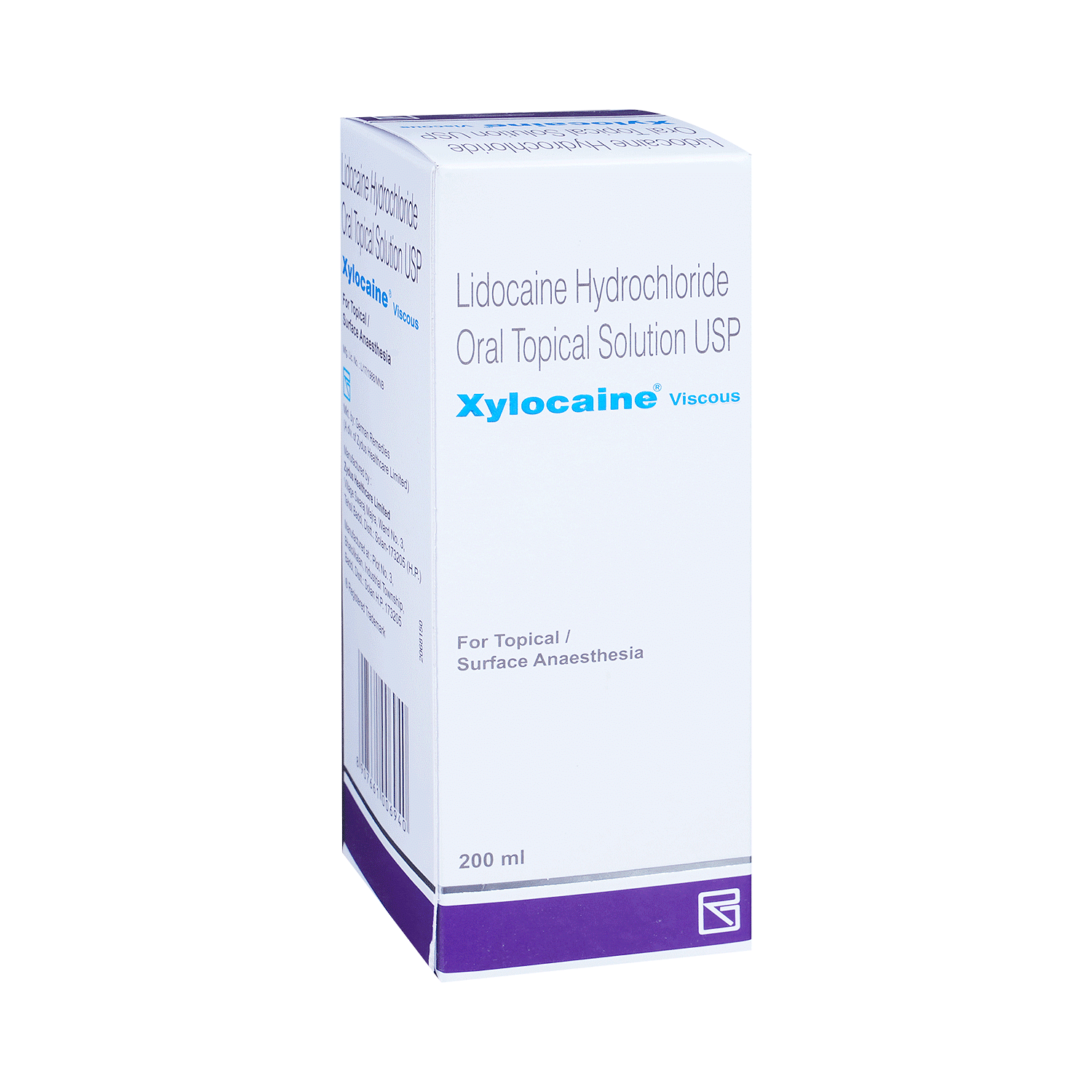
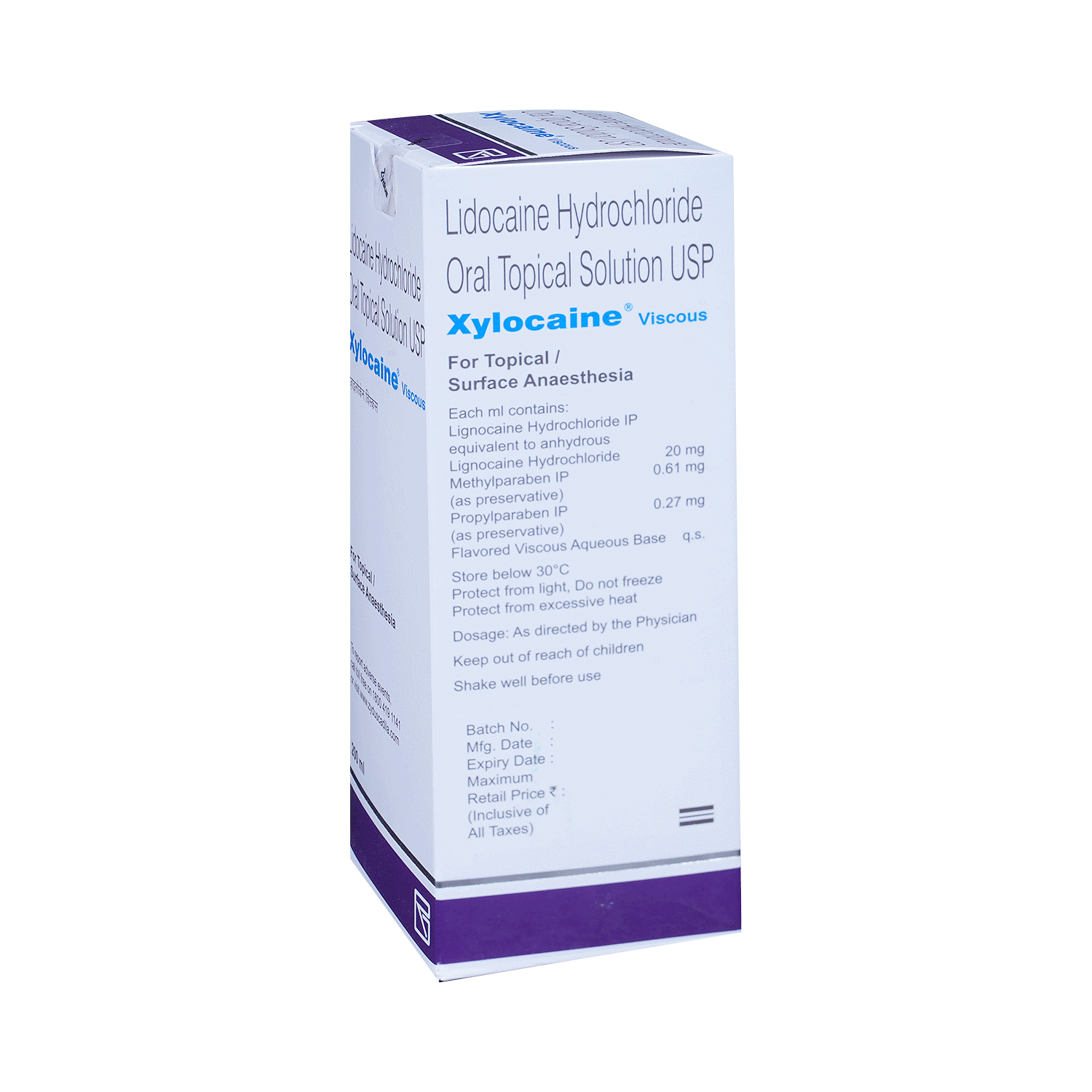
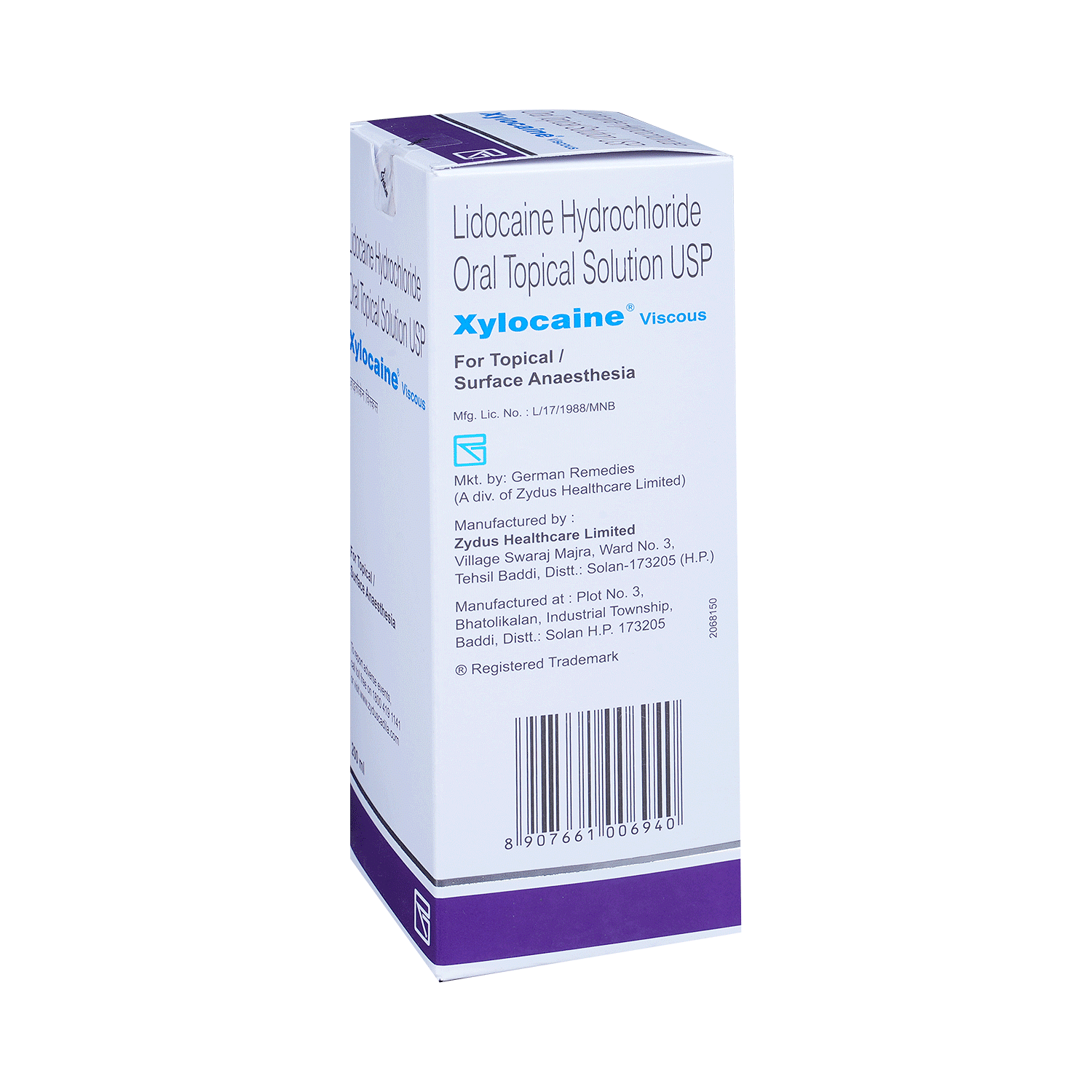
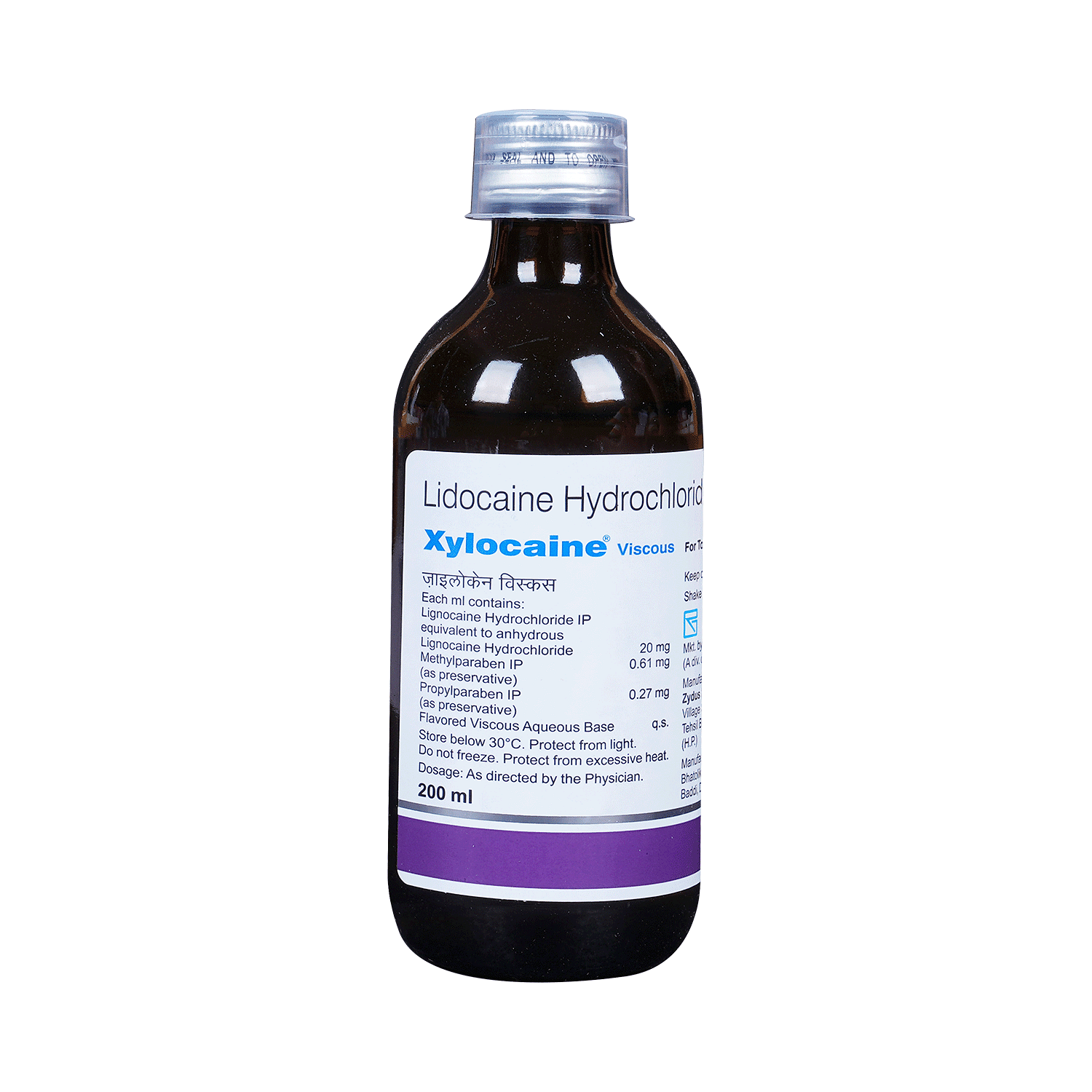
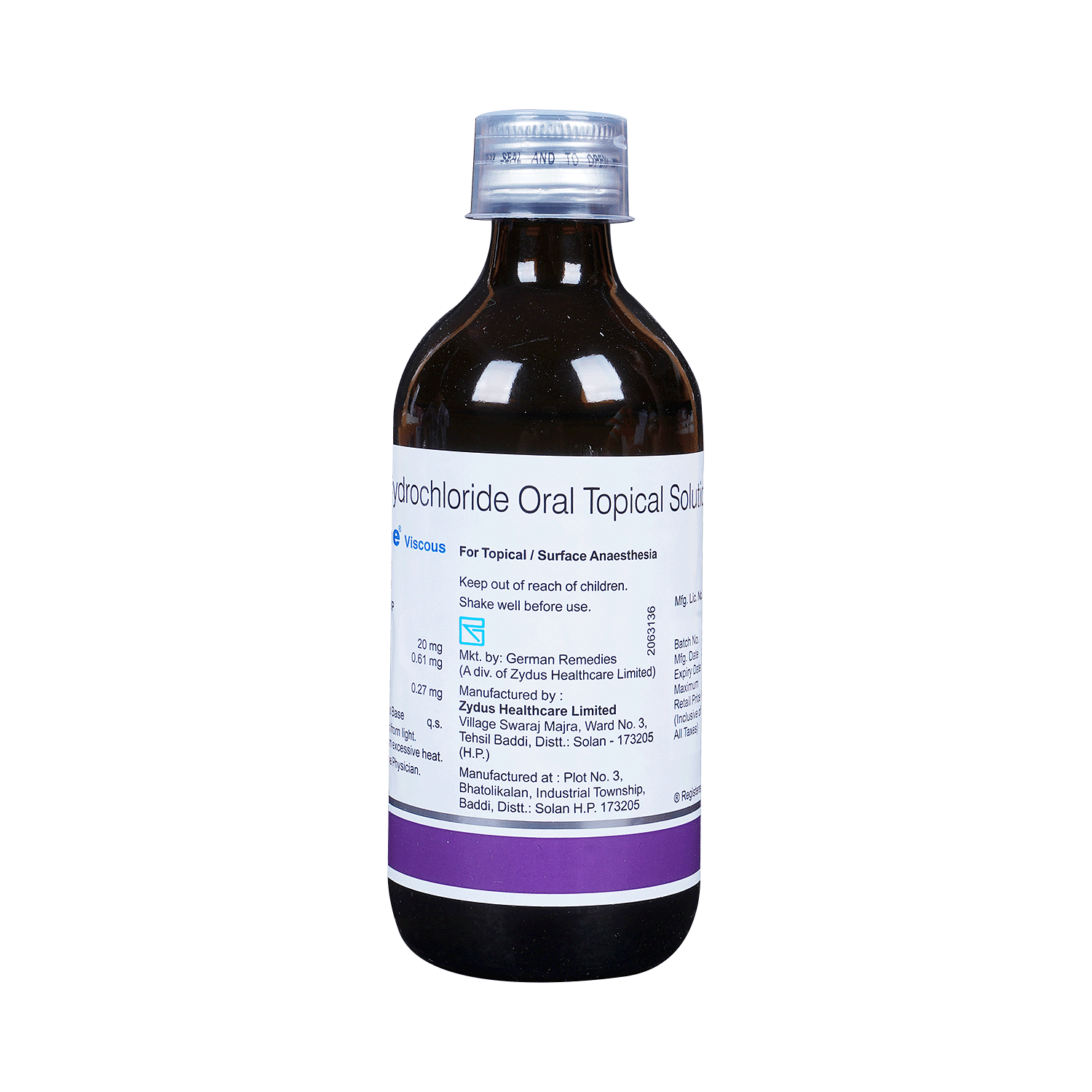
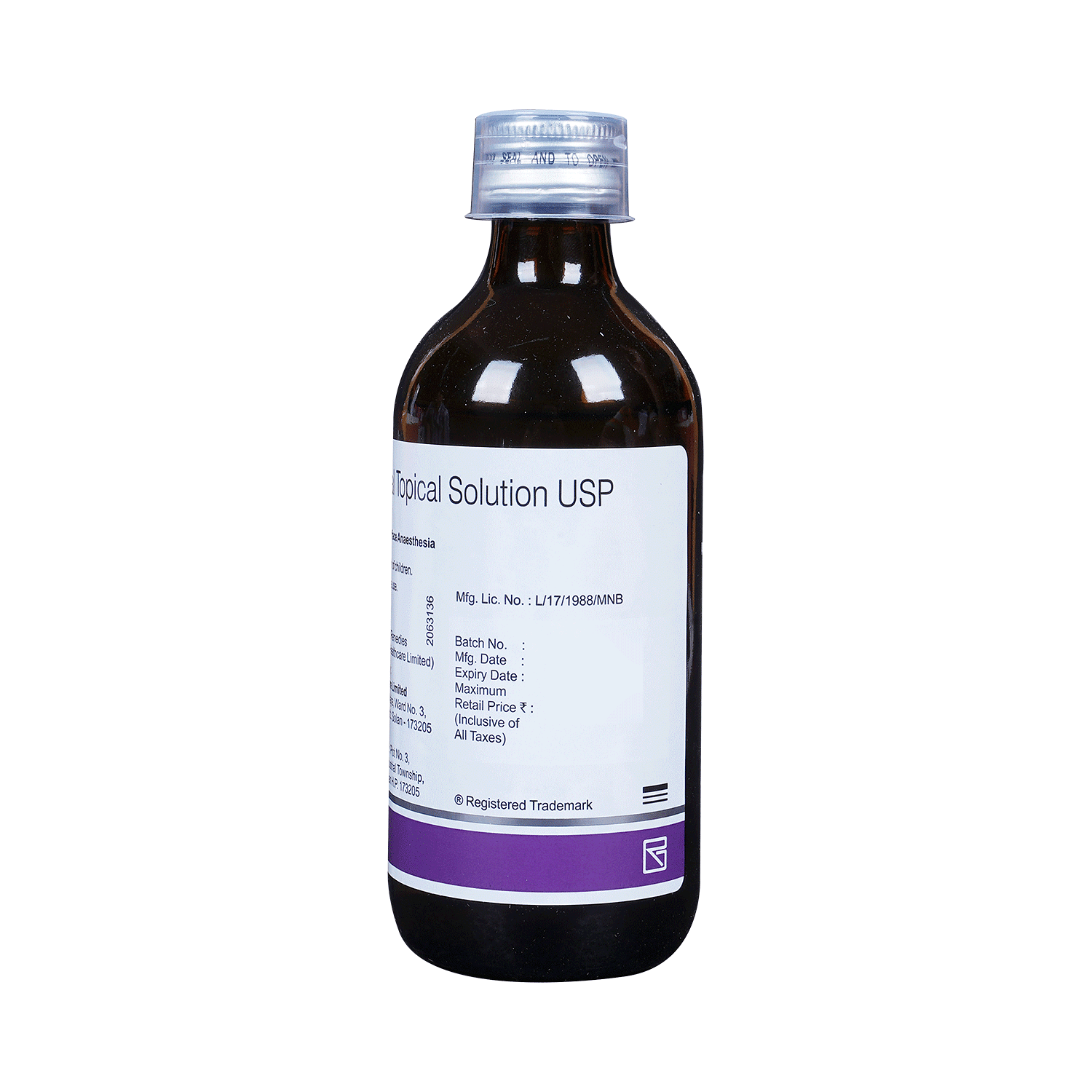
Xylocaine Viscous Solution
Manufacturer
Zydus Cadila
Salt Composition
Lidocaine (20mg)
Key Information
Short Description
Xylocaine Viscous Solution is a local anesthetic used to temporarily numb certain areas of the body.
Dosage Form
Solution
Introduction
Xylocaine Viscous Solution is a local anesthetic used to temporarily numb certain areas of the body. It is used as an anesthetic lubricant to insert instruments in the human body for medical procedures (e.g., catheters). It is also used for the treatment of symptoms of painful inflammation of the urethra and bladder.
Directions for Use
Use this medicine in the dose and duration as advised by your doctor. Check the label for directions before use.
Safety Information
Side Effects
Redness Rash Burning Itching at the site of application
Alcohol Warning
No interaction found/established
Breastfeeding Warning
Xylocaine Viscous Solution is probably safe to use during breastfeeding. Limited human data suggests that the drug does not represent any significant risk to the baby.
Pregnancy Warning
Xylocaine Viscous Solution is generally considered safe to use during pregnancy. Animal studies have shown low or no adverse effects to the developing baby; however, there are limited human studies.
Interacting Medicines
Amiodarone Fosphenytoin Phenobarbitone Propranolol
How it works
Xylocaine Viscous Solution is a local anesthetic. It works on the skin by blocking pain signals from the nerves to brain. This numbs the area and decreases pain sensation.
Quick Tips
Apply it over the affected area with a clean fingertip Three to four times a day or as directed by your doctor Do not apply it to broken or infected areas of skin Do not cover the area being treated with airtight dressings such as bandages Avoid contact with eyes, mouth, and nose
Frequently asked questions
What is Xylocaine Viscous Solution used for?
Xylocaine Viscous Solution is a topical anesthetic medication typically administered by healthcare professionals prior to procedures or injections. It works by numbing the area being treated, providing pain relief during medical interventions like needle insertions or catheter placements.
How long does it take for Xylocaine Viscous Solution to work?
Xylocaine Viscous Solution is applied before procedures and typically begins its numbing effect within 3-5 minutes of application.
Is Xylocaine Viscous Solution toxic?
Xylocaine Viscous Solution, when used under the guidance of a doctor or as prescribed by them, is generally safe. However, exceeding recommended dosages may lead to significant health complications such as oral and throat numbness if ingested, resulting in difficulties with swallowing and even choking.


